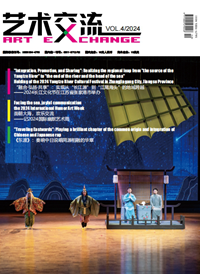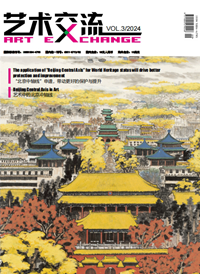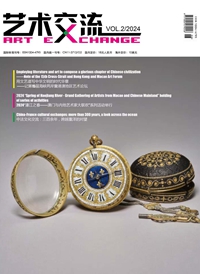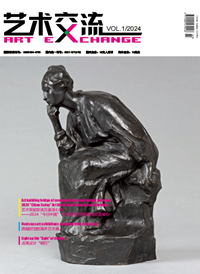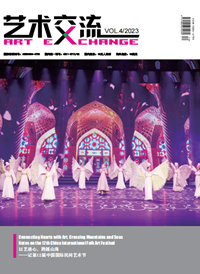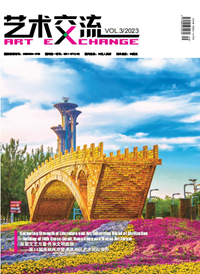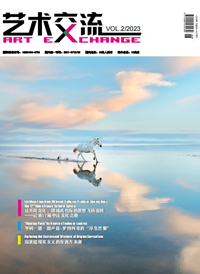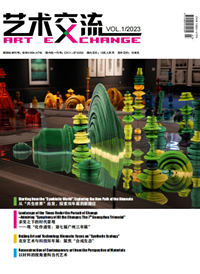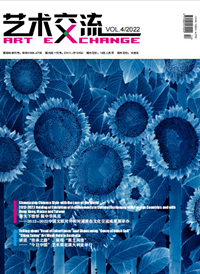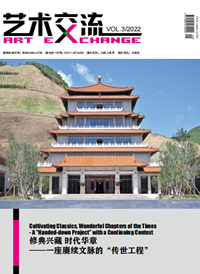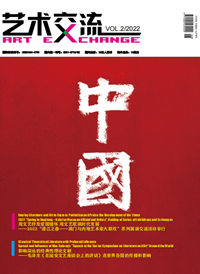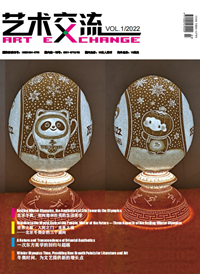Colors of India Festival
—— Literary and Art Gala in China

Ribbon-cutting by Distinguished Guests at the Exhibition

Scene of the Performance

Guo Yunde Met with Vanlalhuma

Chinese Audience Viewed the Exhibition
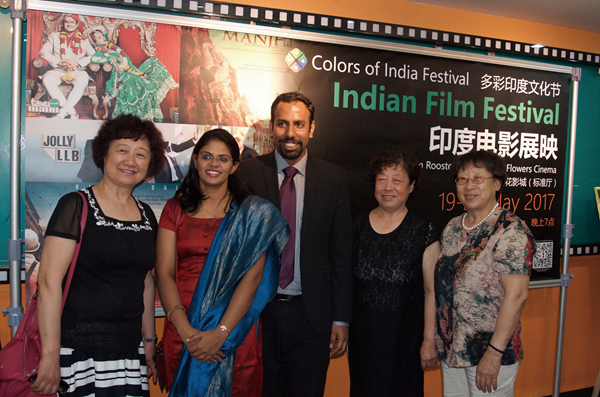
Group Photo of Chinese Audience and Indian Guests duirng Indian Film Show
“Has everyone here seen the latest release of Indian film Dangal ? As a must-see, this film has made a historical success in the Chinese film market and testified the influence of Indian films.” In this May of early summer when flowers bloomed and nature sent out its vitality, this Indian film became the honor of India and the key words of Mr. Amit Narang, chargé d’affaires of Indian Embassy in China, in the Colors of India Festival jointly sponsored by CFLAC, Indian Council for Cultural Relations, and Indian Embassy in China.“This time, our Bollywood wins over American Hollywood!” Besides this hot issue of Indian film, Amit Narang took delight in the raging fashion of Indian literary and artistic gala. The Colors of India Festival from May 15 till 26, consisting of Buddhist Heritage of India Photo Exhibition, Indian Film Festival and Gala Performance of India, took places in Beijing and Nanjing, enable Chinese public to appreciate the current literary and art works in India within a short time and to learn more about the contemporary vitality of this time-honored civilization.
This 90-picture photography exhibition provided Chinese audiences with an opportunity to enjoy the artistic charm of Buddhist architecture, sculpture and fresco as well as folkloric dance and rituals in India. From May 15 till 19, Buddhist Heritage of India Photography Exhibition was open to the public at CFLAC Exhibition Hall and it was the first time that a foreign art event was held there. From May 22 till 26, this exhibition took place at Modern Art Museum Jiangsu. Most of the exhibits were shot by Indian prestigious photographer Benoy K. Behl who has taken pictures at many sacred places and relic sites of Buddhism all over the world and recorded numerous Indian art and cultural heritages with unique attraction. “Buddhism has its origin in India and its prosperity in China, and thanks to Buddhism, Indian literature and arts are introduced to China and other Asian countries. Therefore Buddhism is undoubtedly a key bond of China-India cultural exchange. Today’s exhibition, as a full-length showcase of Buddhist art and heritage in India, will play an active role in promoting exchanges between the two countries.” Dong Zhanshun, Director General of International Liaison Department of CFLAC introduced. As Amit Narang put, this exhibition could enable Chinese public to know more about Buddhist heritage all over India, and gain knowledge of thousands of years’ influence and contribution of Idian Buddhist art to the development of India and East Asian cultures.
In the wake of this silent exhibition, Indian artists brought to Chinese audiences a crazy fashion of songs and dances of India. On May 20 and 25, the gala performance jointly dedicated by Charishnu Group and Bollywood Company from India was staged respectively at Future Theatre in Beijing and Nanjing Great Hall of the People, in a comprehensive showcase of traditional Indian dance, vigorous folkloric dance and romantic Bollywood musicals. “The cultural exchange between India and China can be dated back to several centuries ago and has witnessed further prosperity in the past decade.” Vanlalhuma, Deputy Director General of ICCR, introduced.
The word “Charishnu” literally means “the desire to move”, and this traditional dance has adopted such performing formalities as classical dance, folkloric dance and martial arts. Dancers of different forms move in varying rhythms, each in their own style and reveling in their respective languages of expression. As the strength and beauty of all these dance styles vary, it is a spectacular dance and music presentation that offers Chinese audiences a glimpse of the diversity and richness of India’s performing arts. Dancers present themselves in their distinctive costumes, with their unique percussive beats, and in all the grandeur and precision. Never minding what is being sung, the Chinese audiences could feel deeply the message of love and joy conveyed from the heart of Indian artists.
Bollywood has conquered the hearts of countless people across the world through its simplicity and its ability to bring smile and joy to the owdience. For the first time in China, Colors of India Festival brought Bollywood from screen to stage. The Bollywood Musical Love Story is a legend of dreams and its highlights are gorgeous colors and exotic costumes, spectacular fight sequences, tear-jerking romance. This passionate performance let Chinese audiences fully experience the glamour of this mysterious country and relsh the artistic enjoyment of body and soul.Just as Indian songs and dances reminded Chinese people of Bollywood, the original films of Bollywood characterized by melodious music and dance and amazing output were naturally on indispensible part of this festival. “Indian films have built a reputation for its passionate songs and dances as well as the extolling of friendship, love and family. Chinese people are familiar with Indian films. Since the 1970s, films like Caravan and Awaara have left profound impression on Chinese people. The touching stories, bright characters and familiar rhythms in these films have created many warm memories for us and carried us through lots of beautiful nights.” As Song Dai, president of China Film Publishing House, said, in the 21st century, Indian filmmakers are persistent in exploring and creating new ftms. With their strong passion and professionalism for film art, they have produced lots of distinctive and remarkable films such as The Three Idiots .
During Colors of India Festival, Bollywood, as the biggest film industry in the world in terms of number of people and number of films produced, presented five of the highest grossing films in recent years. Each film represented a unique genre of romance, comedy, action thriller, adventure and drama. Tanu Weds Manu was a comedy of blind date and wedding, Kahaani was a “remote and cruel” story of a woman in search of her missing husband and Prem Ratan Dhan Payo was about imperial conspiracy. Jolly LLB was the Bollywood version of the Devil’s Advocate while Manjhi the Mountain Man was an Indian version of Chinese fable Yugong Moved Mountain . “Upon entry into the Chinese market, Bollywood films from India will invariably make a success. Why Chinese people like Bollywood films from India so much? In my opinion, Hollywood focuses on technology while Bollywood on artistry in emotional expression and addressing social issues, and therefore Chinese viewers can find sympathy in Bollywood films.” Amit Narang concluded.
According to Dong Zhanshun, while receiving ICCR delegation in 2016 in China, CFLAC and ICCR officially signed the Memorandum of Understanding (MOU) so as to promote exchange and cooperation in culture and arts between China and India. As the MOU stipulates, Colors of India Festival was to be held in China in May of 2017 while China Today Arts Week will take place in India in November of 2017. As part of implementation of MOU, this significant event aims to promote mutual understanding and art exchange between art circles of China and India, as well as to enhance friendship and professional mutual learning. “As two ancient civilizations on the Silk Road, China and India enjoy thousand years of friendly communications, and their joint revival in the future will be a common expectation of the two peoples and even the whole world. In the immediate wake of the ‘Belt and Road’ Summit Forum for International Cooperation, ‘B&R’ initiative, put forward by President Xi Jinping of China, had gained active feedback from various countries. Through Colors of India Festival, we hope to further promote the exchange and cooperation of art circles between the two countries and make due contributions to common development and lasting friendship.” Guo Yunde, vice president of CFLAC, said in his speech.




